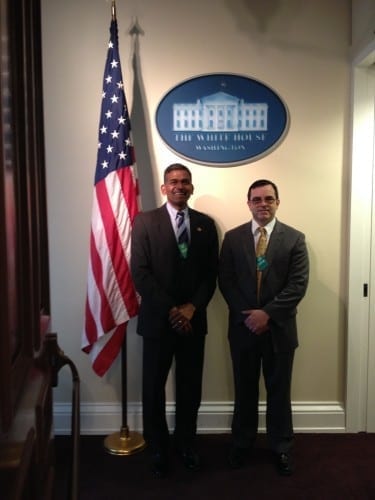
The Des Moines University College of Osteopathic Medicine has made a commitment to train the next generation of health professionals to address the health impacts of climate change. Deans from 30 medical, public health and nursing schools from 26 institutions around the country released a joint commitment statement Tuesday.
“This commitment means that there is a host of data showing an increase in respiratory diseases, kidney stones and infectious disease, and part of that equation is due to the changes in the climate,” says J.D. Polk, D.O., M.S., M.M.M., CPE, FACOEP. “It does not mean inserting partisan politics or throwing rocks at industry. We need to educate the health care leaders of tomorrow on the world that is changing and how disease will be changing in the years to come, in part due to climate change.”
“When the human body has a change in temperature — even by a few degrees — it is signaling that something is wrong in its homeostatic balance. The planet is much the same. The Earth is nearly a full degree warmer than it was 100 years ago. We don’t ignore a patient with a fever, and we should not ignore a planet with one either.”
Polk, Yogesh Shah, M.D., M.P.H., associate dean of global health at DMU, and a number of other deans took part in a roundtable hosted by White House Senior Advisor Brian Deese on April 9 to discuss how they can incorporate climate change into their programs.
“Teaching practitioners to be holistic is at the heart of osteopathic medicine,” Polk says. “Being holistic does not have to stop at the patient. We can have a holistic view of public health as well.”
[release]

